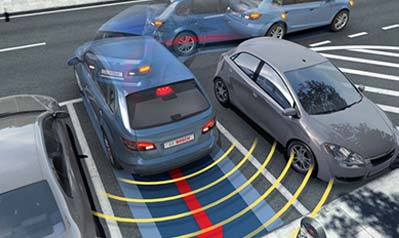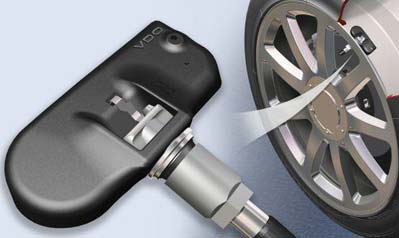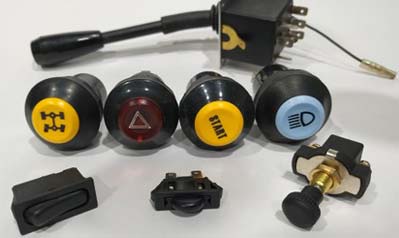Welcome to May Auto Parts Manufacturing & Supplying (MAPMS)
Welcome to May Auto Parts Manufacturing & Supplying (MAPMS)
The ignition system is a crucial component in every car, as it is responsible for sparking the combustion process in the engine. This system consists of various parts that work together to ensure smooth engine start-up and performance. Additionally, upgrading your car's ignition system can offer several benefits, such as improved fuel efficiency, increased power, and a more reliable engine. However, like any other part of the vehicle, the ignition system can experience problems. Troubleshooting these issues is essential to keep your vehicle running smoothly. Here are some key aspects of the ignition system, its benefits when upgraded, troubleshooting tips, and common problems with their solutions.
The car ignition system consists of several essential parts working in unison. These include the ignition coil, distributor, spark plugs, ignition switch, ignition module, and the crankshaft position sensor. The ignition coil converts the low voltage from the battery into a high voltage required to create a spark. The distributor directs this high voltage to the correct spark plug. The spark plugs then generate the spark needed to ignite the air-fuel mixture in the combustion chamber. The ignition switch activates the entire ignition system, while the ignition module controls the timing of the spark. Finally, the crankshaft position sensor helps the engine control unit (ECU) determine the ignition timing.
Upgrading your car's ignition system can lead to various advantages. Firstly, it can enhance fuel efficiency by ensuring a more efficient combustion process, reducing wasted fuel. A high-performance ignition system can provide cleaner and more complete burn of the air-fuel mixture, which results in improved fuel economy. Secondly, an upgraded ignition system can provide an increase in engine power. With a stronger and more consistent spark, the fuel mixture can be ignited more effectively, leading to improved acceleration and overall performance. Additionally, upgrading the ignition system can result in a more reliable engine. A reliable ignition system ensures that the engine starts smoothly and consistently, reducing the likelihood of stalling or misfires. Overall, an upgraded ignition system can optimize engine performance, increase power, improve fuel efficiency, and prolong the life of your vehicle's engine.
If you suspect a problem with your car's ignition system, there are a few troubleshooting tips to help identify and resolve the issue. Firstly, check for any loose or corroded connections between the ignition components. Loose connections can disrupt the flow of electricity and affect the spark quality. Tighten or replace them as necessary. Secondly, inspect the spark plugs for wear, carbon buildup, or damage. Worn-out or fouled spark plugs can prevent an effective spark from being generated. Replace them if needed. It is also vital to verify that the ignition coil is receiving sufficient voltage and producing the correct output. A faulty ignition coil can lead to weak or inconsistent sparks. Furthermore, ensure that the ignition switch is functioning correctly. A worn-out or malfunctioning ignition switch can cause electrical issues or prevent the engine from starting. If these steps do not resolve the problem, it is advisable to consult a professional mechanic to diagnose and address any underlying issues. Professional expertise can help avoid any further damage or risk.
Some common ignition system problems include worn-out spark plugs, a faulty ignition coil, a malfunctioning ignition switch, or a defective crankshaft position sensor. Over time, spark plugs can wear out, become fouled, or accumulate carbon deposits. Solution for these issues would require replacing the faulty spark plugs with new ones. A faulty ignition coil can cause weak sparks or no sparks at all. The solution is to replace the faulty coil with a new one. A malfunctioning ignition switch can result in electrical issues, such as failure to start the engine or problems with the accessories. Replacing the faulty ignition switch can resolve this problem. Finally, a defective crankshaft position sensor can affect the ignition timing, leading to engine performance issues. Replacing the faulty sensor can help restore proper ignition timing and engine performance. Regular maintenance of the ignition system, such as cleaning or replacing spark plugs, can prevent these problems from occurring. Additionally, keeping the ignition components free from dirt and corrosion can improve their lifespan.
In conclusion, understanding the various car ignition system parts and their functions is crucial for maintaining an efficiently running car. Upgrading your car's ignition system offers several benefits, including enhanced fuel efficiency, increased power, and a more reliable engine. If you encounter a malfunctioning ignition system, try troubleshooting the issue with the provided tips. However, for complex problems, seeking professional assistance is always recommended. By addressing ignition system problems promptly, you can ensure a smooth and trouble-free driving experience.
Popular Automotive Spare Parts
 The Multifunctionality of the Headlight Combination Switch
READ MORE >
The Multifunctionality of the Headlight Combination Switch
READ MORE >
 Igniting Efficiency: The Role of Car Ignition Coils in Engine Power
READ MORE >
Igniting Efficiency: The Role of Car Ignition Coils in Engine Power
READ MORE >
 The Car Engine Is Actually Durable, But You Can Scrap It in Minutes by Doing These 4 Things!
READ MORE >
The Car Engine Is Actually Durable, But You Can Scrap It in Minutes by Doing These 4 Things!
READ MORE >